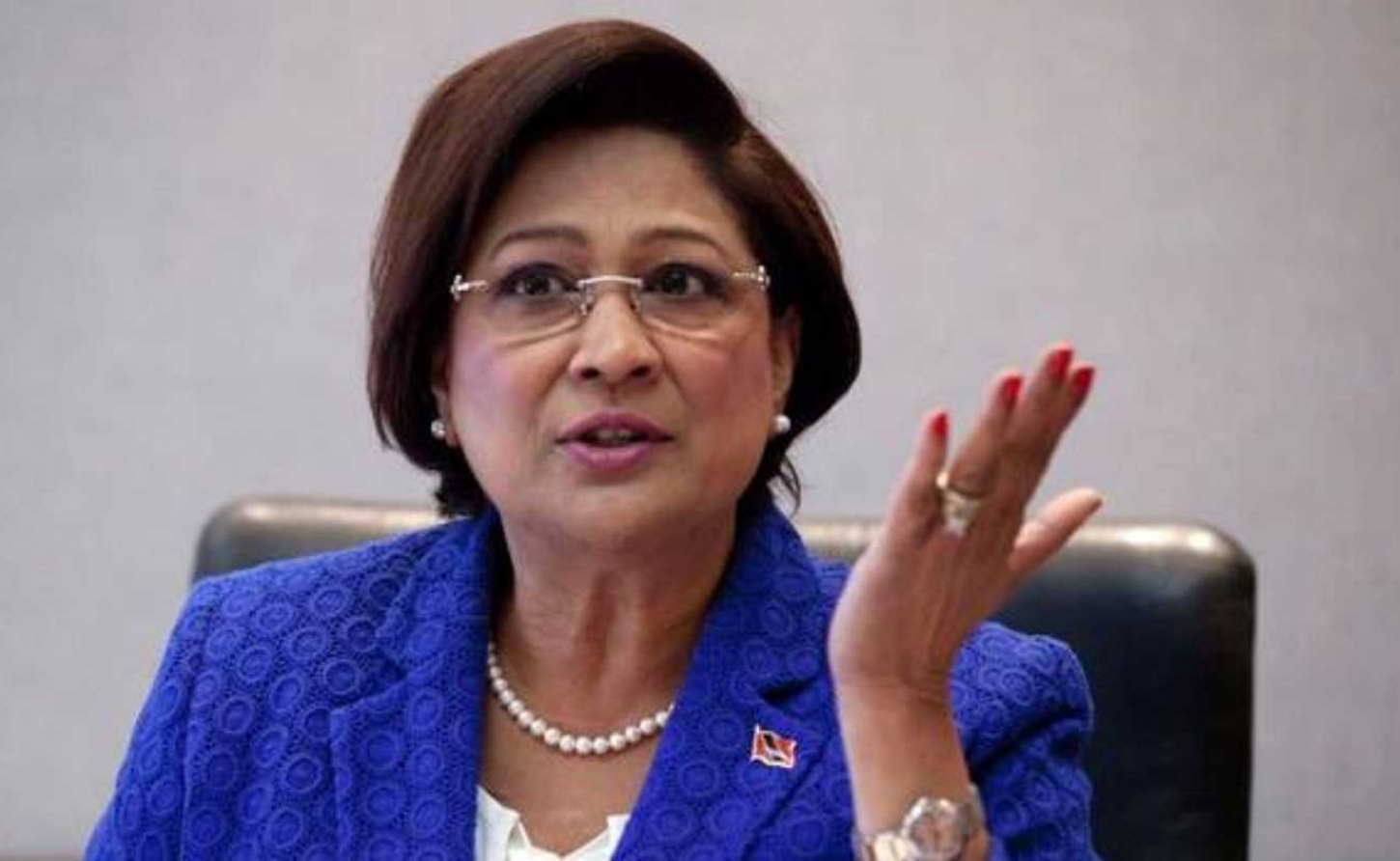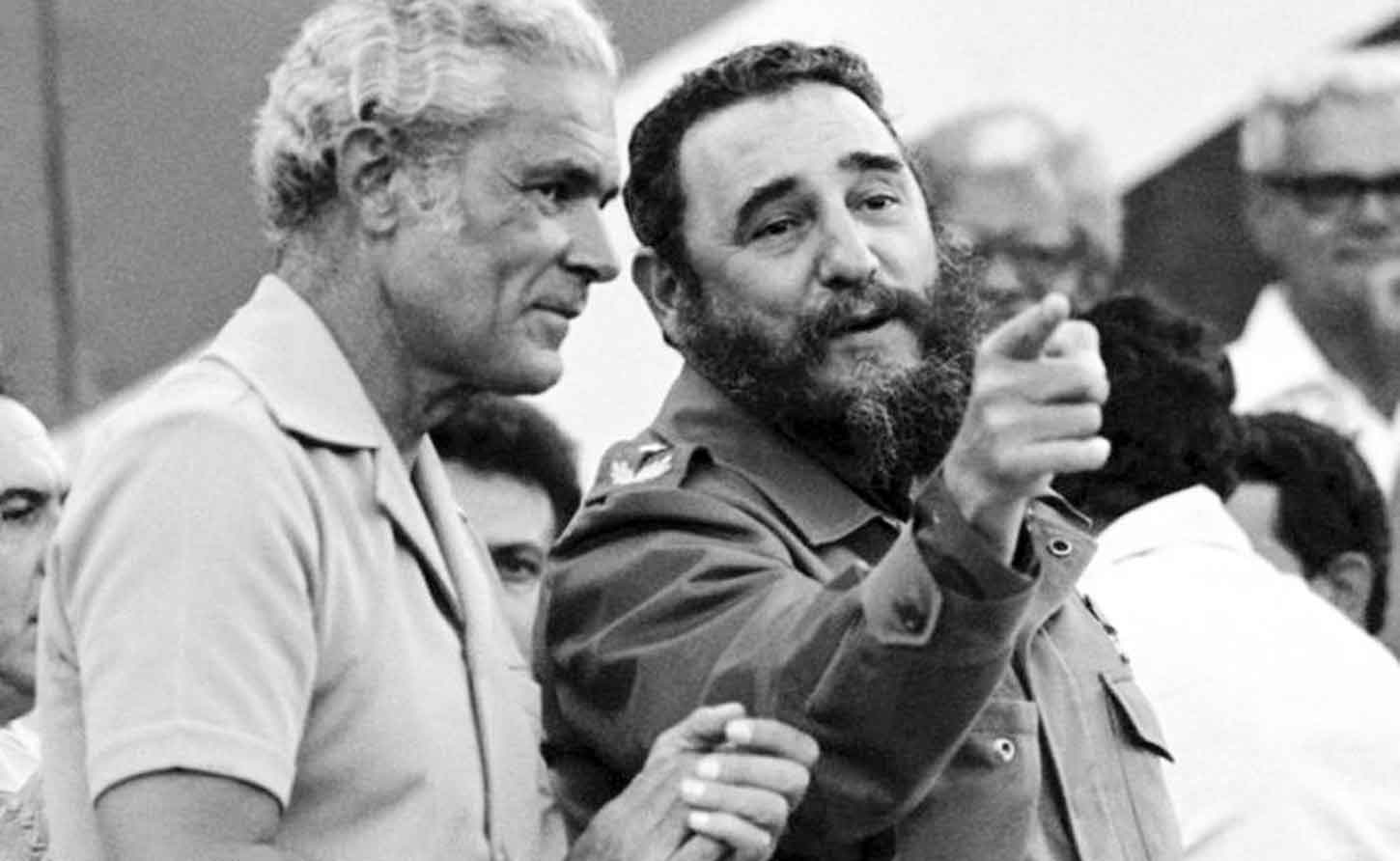Jamaica’s Diplomatic Silence: Why Our Prime Minister Refuses to Speak on Venezuela, Gaza, and Cuba

By O. Dave Allen
Kamla Persad-Bissessar, the reactionary current Prime Minister of Trinidad and Tobago, who was sworn in on May 1, 2025, has has now exposed a familiar fault line in Caribbean politics—small island states aligning themselves with imperial aggression under the guise of democracy and humanitarian intervention.
Her renewed and unambiguous support for the planned invasion of Venezuela is a stark reminder of 1983, when Dominica’s Prime Minister Eugenia Charles stood shoulder-to-shoulder with U.S. President Ronald Reagan in support of the invasion of Grenada. In that infamous moment, she was joined by another Cold War ally, Edward Seaga, the then Jamaican Prime Minister and loyal lieutenant of Washington.
Forty years later, we find ourselves at the precipice of another geopolitical crisis—not with Soviet missiles, but with economic sanctions, cyber warfare, and proxy battles.
This time, it is a desperate American empire, flickering at the edges of its own greatness, that seeks to reassert its dominance in the Caribbean Basin amid rising Chinese influence. And once again, Caribbean leaders are being pressured to choose sides.
In this moment of high-stakes diplomacy, Jamaica’s current Prime Minister has chosen—not to choose. He stands mute and passive on the sidelines of the world stage. His foreign policy record is marked by hesitation, diplomatic ambiguity, and moral evasion.
At the United Nations, he was quick to condemn Hamas as a terrorist organization, yet failed to call out Israel for what respected scholars, humanitarian agencies, and global observers have called genocide in Gaza.
On Cuba—a historic friend to Jamaica whose doctors have served rural communities long neglected by global health systems—he failed to defend their contribution.
And as CARICOM Chairman, he has been conspicuously absent from the mantle of leadership that demands defending the Caribbean as a Zone of Peace, a principle we once held dearly.
This is not merely poor optics. It is a dereliction of statesmanship.
The Manley Doctrine: A Legacy Abandoned

Instead, he boldly inserted Jamaica into the protective cloak of the Non-Aligned Movement—a coalition of newly independent nations from Asia, Africa, and Latin America that refused to serve as pawns in the superpower chess game.
Manley’s foreign policy, buttressed by the brilliant stewardship of his Foreign Minister Dudley Thompson, was rooted in South-South solidarity—the belief that developing nations should trade, cooperate, and build alliances with each other rather than be dependent on the North.
His vision gave Jamaica a moral stature far exceeding its size. He navigated the treacherous waters of Cold War politics with intellect, clarity, and courage, placing Jamaica among the ranks of global thought leaders in the developing world.
It is worth asking: Where is that courage now?
A Leadership Void in a Dangerous Era
Today’s Jamaica is adrift. Our foreign policy lacks not only bold vision, but basic diplomatic capacity. The current administration, led by the Jamaica Labour Party (JLP), appears unable to engage with the nuance and complexity of global affairs.
The foreign service has been hollowed out, reduced to ceremonial postings and technocratic jargon. We lack the personnel, the intellectual tradition, and—perhaps most damningly—the will to formulate a sovereign international strategy.
Instead of acting as a respected voice for the Global South, Jamaica has become little more than a student in the school of empire, parroting platitudes, avoiding conflict, and shying away from principle.
What makes this more troubling is the global moment we now inhabit. The new Cold War between the United States and China is not just about military might; it’s about technological dominance, trade routes, energy policy, and ideological alignment.
Jamaica, like many developing nations, sits squarely in the path of this confrontation. Our ports, our telecom infrastructure, our tourism, even our natural resources are increasingly entangled in the silent tug-of-war between Washington and Beijing.
To remain silent is not to remain neutral. It is to be complicit.
Jamaica Must Reclaim Its Voice
Jamaica’s historical role as a bridge between North and South, East and West, is too valuable to be squandered. We must reclaim our legacy of principled foreign policy, rooted in independence, peace, and solidarity with the oppressed. This means:
- Reasserting the Caribbean as a Zone of Peace, as declared by CARICOM, and resisting military interventions in sovereign nations like Venezuela.
- Defending Palestine with the same clarity with which we condemn terrorism, recognizing that true neutrality demands consistency.
- Celebrating and defending Cuba’s contributions, especially in healthcare and regional solidarity.
- Building diplomatic capacity, including the training of young, critical-minded foreign service officers who can defend Jamaica’s interests with skill and conviction.
The days of echoing Washington’s talking points without interrogation must end. The Caribbean is not a battleground for superpowers. It is a region of dignity, sovereignty, and resilience.
We have been here before—and we have chosen better paths. Michael Manley showed us what it meant to speak truth to power. It is now up to us to remember, and to act accordingly.
-30-
